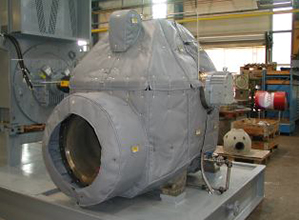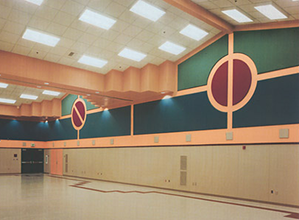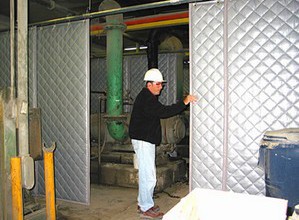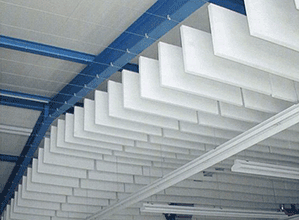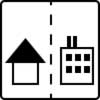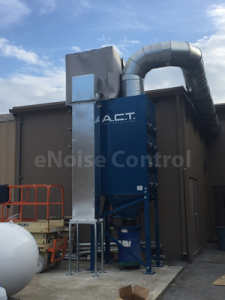Dust Collectors and Noise Control
In many industrial plants, dust is a major byproduct of the daily work. Companies will often use a dust collector – a machine that is specifically designed to combat airborne dust.
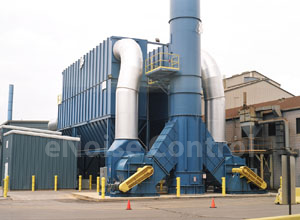 Dust Collection in Action
Dust Collection in Action
Any work that involves an element of cutting, grinding, or sanding is likely to require a dust collector. A woodwork shop is an excellent example of an operation where many of the tasks are going to generate large amounts of dust.
There are less obvious cases of dust creation in the workplace, too. Any process that involves mixing chemicals, such as within in the pharmaceutical industry, is also likely to generate a considerable amount of dust.
Why Does Dust Need Collecting?
There are a number of reasons to collect and remove dust from a workplace. Many of these are related to health and safety.
Business without effective dust management may be in breach of guidelines enforced by the Occupational Safety and Health Administration (OSHA). Improper dust care and containment can create potential health implications for employees.
For example, in the case of a woodwork shop, there is likely to be constant use of electric powered cutting and sanding equipment. The volume of dust generated by this would fill the air and workers would be in danger of inhaling sawdust particles.
Moreover, if dust is coming from a job such as welding or mixing chemicals, it could be particularly toxic for workers to inhale. Even in settings where a mask is word during the activity itself it is not appropriate to have these substances lingering in the air.
Dust is also a fire hazard. When working with flammable materials such as wood, there is a real danger of fire if not using the proper equipment. Because the dust is so fine, it could ignite very quickly.
Types of Dust Collectors
The job of a dust collector is to such up the dust as it is created, separate the solid particles from the gas, and then recirculate the clean air. There are a number of different types of dust collectors and each goes about this process in a slightly different way.
Cyclone of centrifugal collectors use a drain-like centrifugal force to remove the dust. They are particularly suited to high-temperature work and jobs that create a high dust load, such as in sawmills.
Baghouse collectors use a combination of compressed air and filter bags to clean dust-laden air. Baghouse collectors can be colossal in size and thus are often used in major industrial settings, from oil production to peat moss processing.
There are also cartridge and PowerCore collectors that operate in a different fashion and specialist collectors for jobs that produce a mist rather than dust.
Activities such as wet machining or metalworking may generate mist. In these environments, oil or coolant may be a byproduct. This could create slippery floors if not dealt with properly. In these instances, the facility should use a mist collector. A mist collector will use some form of filtration to remove the substances from the air.
Dust Collector Noise Issues
It is clear that here are plenty of options for businesses that need to remove dust from the workplace. Once installed, these machines deal with dust quickly and efficiently while requiring minimal upkeep.
The downside of dust collectors is that they tend to be very noisy. Considering that they run continuously for long periods of the day, there are a number of reasons why you may want to take steps to reduce the noise.
The first reason is the safety and comfort of your employees. If your collector is located inside your facility, the noise is likely to be at a level that inhibits their ability to hear colleagues speak. This is obviously not a particularly pleasant working environment.
Even more importantly, there are safety implications of not being able to communicate easily. If a staff member needs to shout a warning, for example, others may not hear the warning.
For business that have an exterior dust collector, there are some additional considerations. Chief among these is the issue of noise pollution. Local governments may measure the noise, and even if they don’t, you will want to be considerate of neighbors.
Taking Steps to Reduce the Noise
An industrial noise control expert has experience working with facilities to help reduce dust collector noise. They know that there is no “one size fits all” approach and that every company has different requirements.
The noise control process begins by collecting data on your particular scenario. Important information includes blower CFM (cubic feet per minute), decibel level, pressure drop, and acoustic reduction goals for the project. This will help with engineering an industrial silencer that is unique to your air discharge.
Next, it is important to establish whether your collector is an open exhaust or closed loop system. An exhaust silencer on the open port can often effectively treat an open exhaust systems. This is a muffler that is fitted to your duct opening.
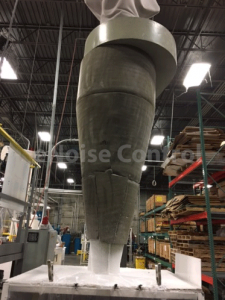 The mechanical blower rotation and the electric motor can also be large contributors to noise levels. Your noise control expert can help suggest the best way to tackle these noise sources. Normally, a 4-sided screen between the blower noise and your employees is effective. Providing photographs of your blower and motor to a noise control expert will result in a comprehensive plan for noise control.
The mechanical blower rotation and the electric motor can also be large contributors to noise levels. Your noise control expert can help suggest the best way to tackle these noise sources. Normally, a 4-sided screen between the blower noise and your employees is effective. Providing photographs of your blower and motor to a noise control expert will result in a comprehensive plan for noise control.
Cyclone casing vibrations can be another cause of noise. This one can be difficult to tackle, but wrapping the casing in a sound blanket can have a positive effect.
Because of the wide variety of industries that use dust collectors, it is important to take an approach that suits each particular situation. The collector type, facility restrictions, and workload will all determine the best way to reduce noise levels. In most cases, there is a method to make your workplace quieter for both employees and neighbors.
Call eNoise Control for help reducing dust collector noise. We can help you with a sound analysis and provide effective solutions for your project.
